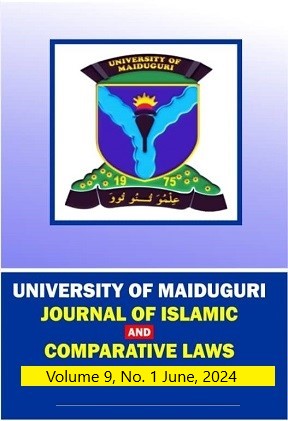NIGERIA AS A SECULAR STATE: ANALYSIS OF THE IMPACT OF ISLAMIC LAW ON MUSLIMS IN NIGERIA
The debate over whether Nigeria is a secular state has
persisted for a long time. This debate is often grounded in
the assumption that Nigeria, influenced by its colonial
masters and other Western jurisdictions that explicitly
declare their secularism in their constitutions, should also
be secular. While this declaration suits the cultural
composition of these Western countries, Nigeria's cultural
and religious composition is complex and dynamic. This
complexity creates a challenging environment for
declaring Nigeria a secular state. The recognition and
integration of Islamic Law (Shar’ia) within the country
further complicate this issue, as Shari’ah law
fundamentally opposes secularism. Therefore, the doctrinal
methodology was employed in this paper to examine
Nigeria's laws and other relevant literature to determine the
nation's stance on secularism. The paper concludes that
based on constitutional evidence and prevailing practices,
Nigeria is not a secular state but a multi-religious one,
where no single religion holds supremacy over the others.
There are no reviews for this Journal.
About the Journal
About
Editorial Team
Curent issues
Archive
DOWNLOADABLES
Guide for contributors
Authors Response Form
Manuscript review Form
Make a Submission

